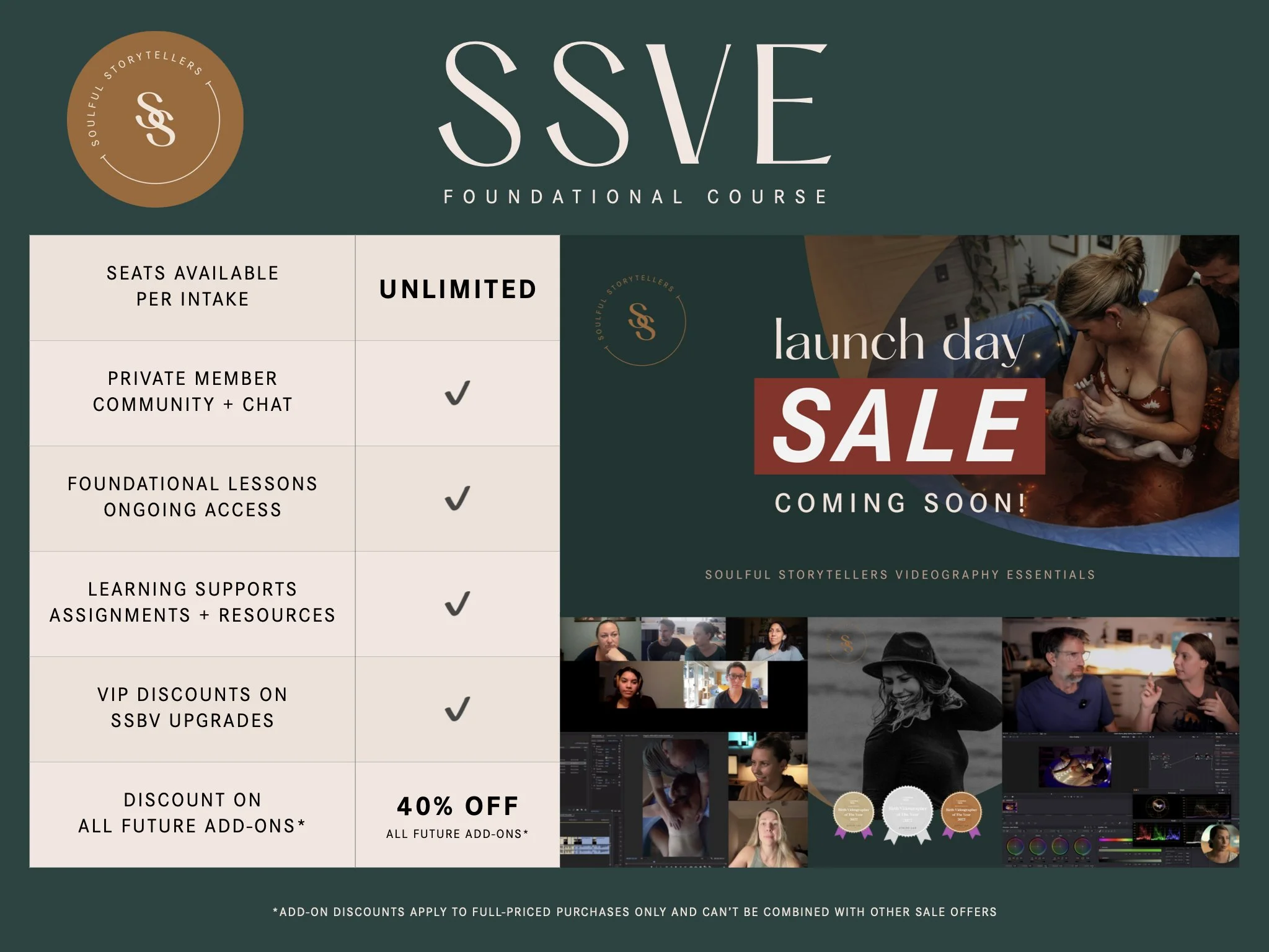How to Become a Birth Videographer: A Beginner’s Guide
(A Gentle Starting Point for Photographers Exploring the Power of Film)
Introduction
If you've ever held your breath behind a lens during a birth and thought, this deserves to be felt in motion, you’re not alone.
More and more birth photographers are answering the quiet pull toward film—a medium that captures not just the moment, but the heartbeat beneath it.
If you're wondering how to become a birth videographer, consider this your gentle entry point. Whether you're an experienced photographer or just creatively curious, here’s a roadmap that won’t overwhelm you.
Step 1: Start With Story, Not Gear
Birth videography isn’t about flashy transitions or epic cinematography. It’s about noticing the small things: the breath between contractions, the hands gripping hands, the rhythm of surrender.
Start by watching a few films that move you. Ask yourself: what made this story feel real?
Wondering what makes film feel so different? Watch this short example from Lauren + Douglas
📽️ FEATURED FILM: THE BIRTH OF BILLY
An emotional reflection of a homebirth transfer ending in cesarean.
Step 2: Understand the Birth Space
If you’ve photographed births before, you already know that the energy of the room matters. Filming adds another layer: movement, sound, presence.
You’ll need to learn how to film quietly, intuitively, and respectfully. That comes with practice—and with mentorship from people who get it.
Looking for expert guidance along the way?
If you want to fast-track your learning and receive hands-on mentorship, check out SSVE (Soulful Storytellers Videography Essentials)—our entry-level course designed for photographers just like you, transitioning into film. It’s a manageable and affordable way to get started and develop your filmmaking skills without feeling overwhelmed. And if you’re ready to take it further, our signature course SSBV (Soulful Storytelling for Birth Videographers) offers advanced techniques and personalized mentorship to help you create professional-quality birth films. →Learn More About SSVE
Step 3: Learn to Work With Light and Sound
You don’t need the latest gear. You do need to understand low-light filming, how to stabilise a handheld shot, and how to capture clean audio without disrupting the space.
It can feel technical at first, but like learning manual mode in photography, it becomes second nature with time.
📷 Behind the scenes with Dania Lauren, capturing the quiet moments that bring birth stories to life on film.
Step 4: Shift From Capturing to Crafting
The magic of filmmaking happens in the edit. Learning to craft a birth story that flows with rhythm, emotion, and intentional pacing takes time—but it’s deeply satisfying.
Your editing style will evolve as your voice does.
Step 5: Find Your Own Voice
You don’t have to film like anyone else. In fact, the best birth filmmakers don’t. Maybe you lean documentary. Maybe you love poetic voiceovers or raw audio.
The point is to create work that feels like you.
Step 6: Start With What You Have
You don’t need to wait for the "right time" or the "right gear." Start where you are. Film a personal story. Offer a beta session. Shadow someone you trust.
Every storyteller starts with one story.
You’re not behind. You’re just beginning.
Final Thoughts: You Don’t Need to Be Ready. You Just Need to Begin.
Birth filmmaking is one of the most rewarding (and underrated) storytelling paths out there. It asks for your presence, your perspective, and your willingness to show up with heart.
If you’re ready to dive deeper into birth filmmaking and gain the skills, support, and mentorship you need, we’ve created a space just for you with our foundational course SSVE and signature birth videography course SSBV.
🎥 Want to go deeper? Join the Soulful Storytellers VIP list to access earlybird course invitations, storytelling tutorials, and creative support for photographers transitioning into film.
Written by Dania Lauren, award-winning birth filmmaker, storytelling educator, and co-creator of Soulful Storytellers, a creative community for photographers and filmmakers looking to elevate their storytelling craft. Through her studio, Lauren + Douglas, Dania creates emotive, documentary-style films for families and brands who value stories that feel as meaningful as they look.





